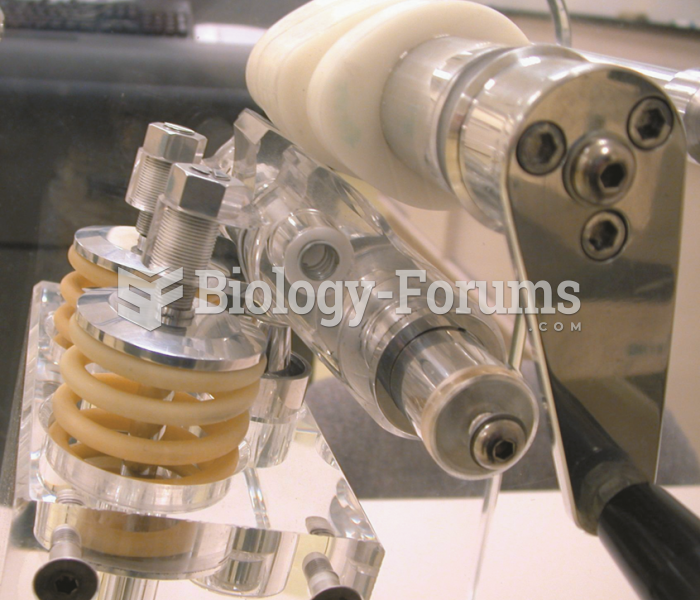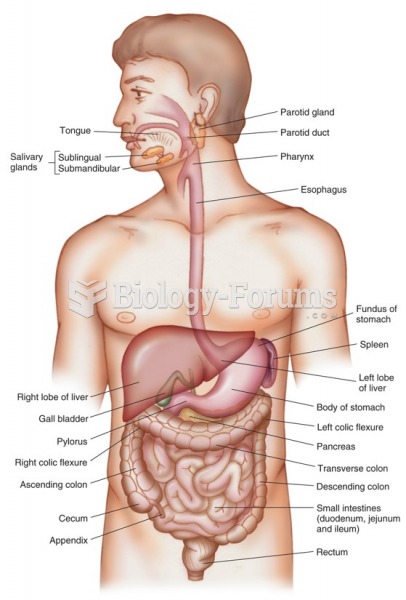|
|
|
The Centers for Disease Control and Prevention has released reports detailing the deaths of infants (younger than 1 year of age) who died after being given cold and cough medications. This underscores the importance of educating parents that children younger than 2 years of age should never be given over-the-counter cold and cough medications without consulting their physicians.
According to the Migraine Research Foundation, migraines are the third most prevalent illness in the world. Women are most affected (18%), followed by children of both sexes (10%), and men (6%).
Human stomach acid is strong enough to dissolve small pieces of metal such as razor blades or staples.
The immune system needs 9.5 hours of sleep in total darkness to recharge completely.
More than nineteen million Americans carry the factor V gene that causes blood clots, pulmonary embolism, and heart disease.







